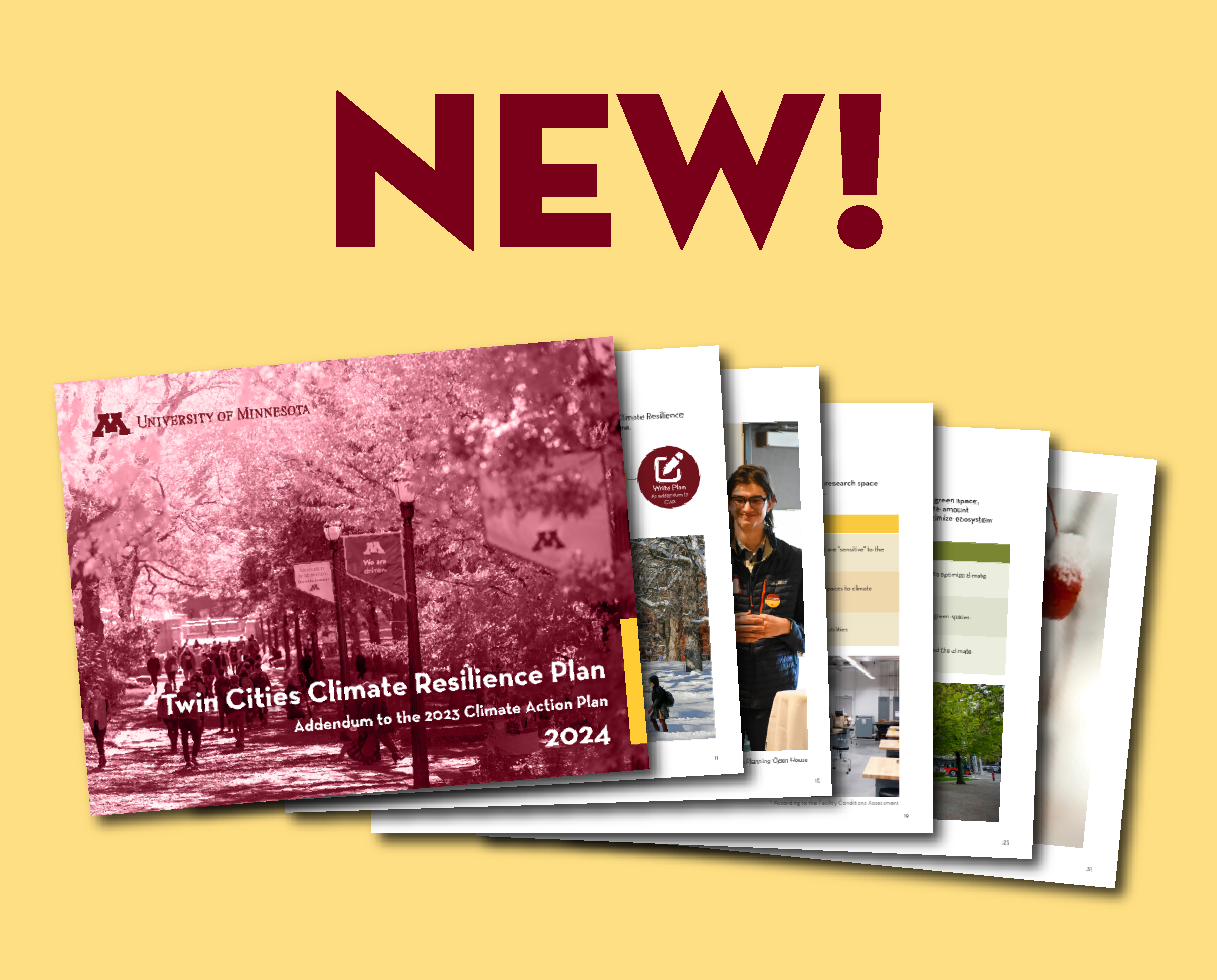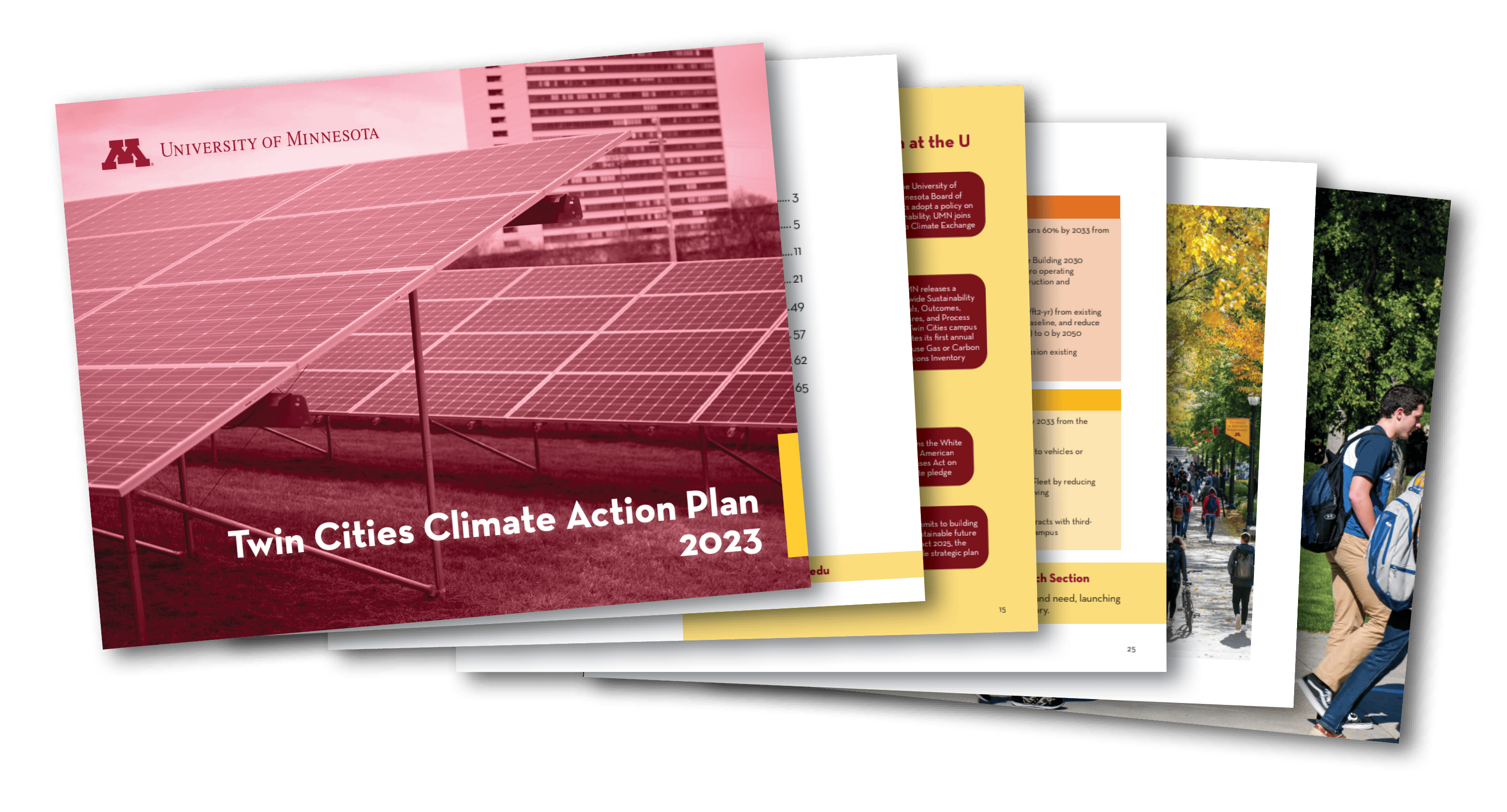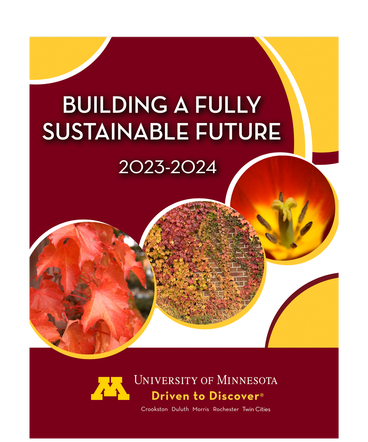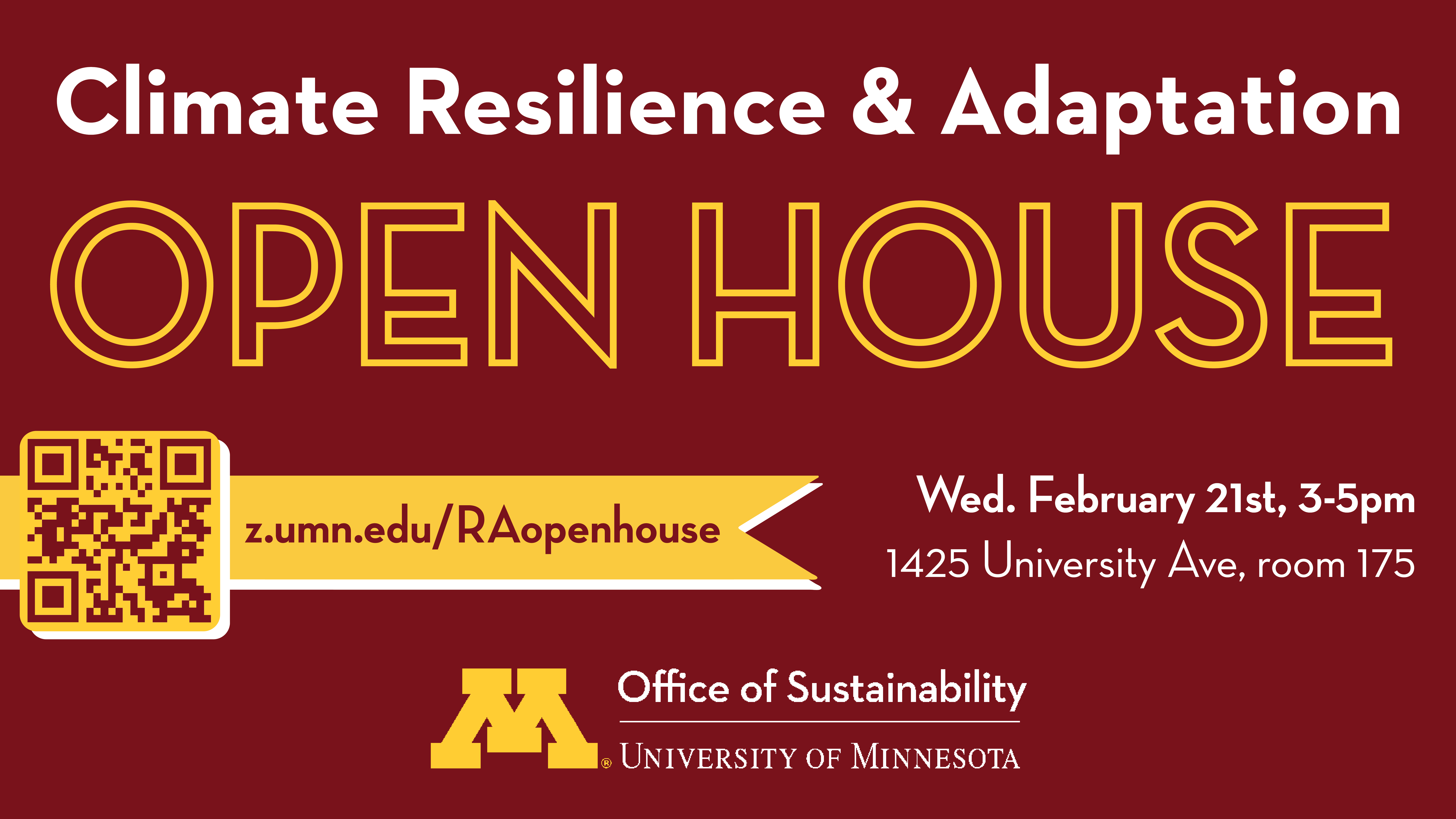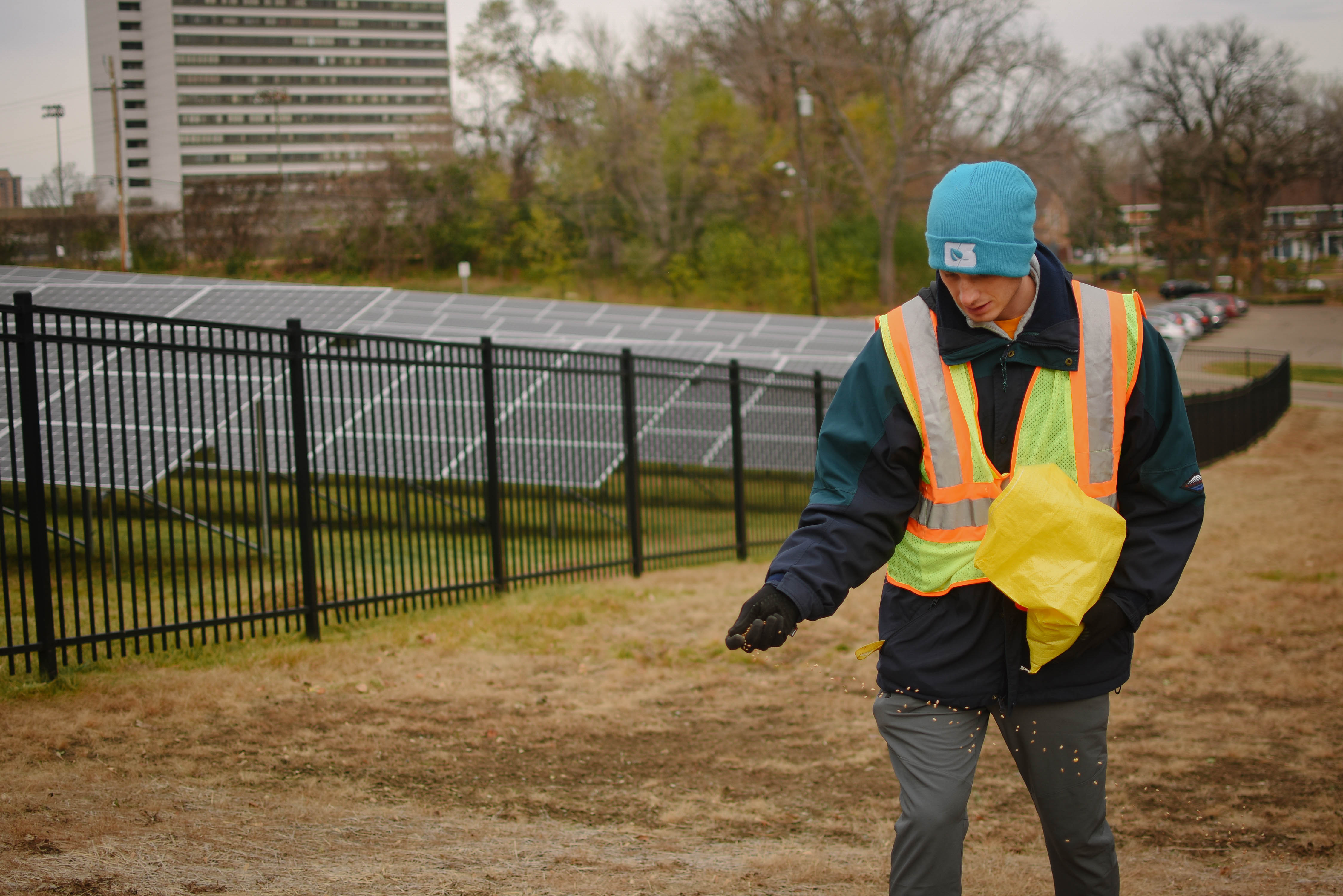
Jacob Bechtold, Industrial Engineering major and IonE Student Staff
On a chilly morning in November, a team of volunteers led by Aaron Hanson, a researcher from the Institute on the Environment, spread pollinator-friendly seeds at West Bank’s solar array. Volunteers raked and dethatched the soil in the grassy area surrounding the array before planting the pollinator habitat. The University received the seeds from the Bee & Butterfly Habitat Fund.
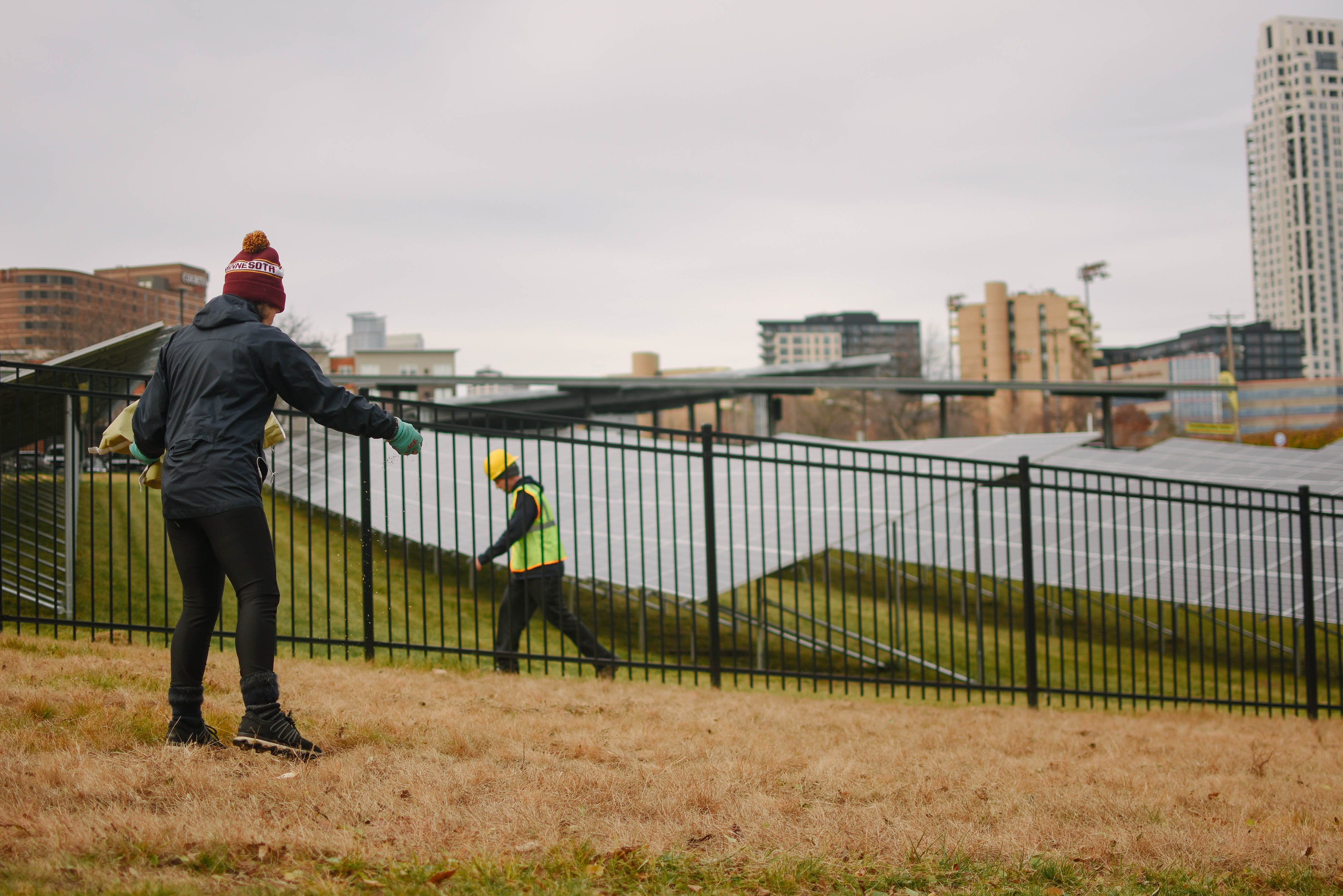
Sarah Bauer, J.D. Candidate, University of Minnesota Law School
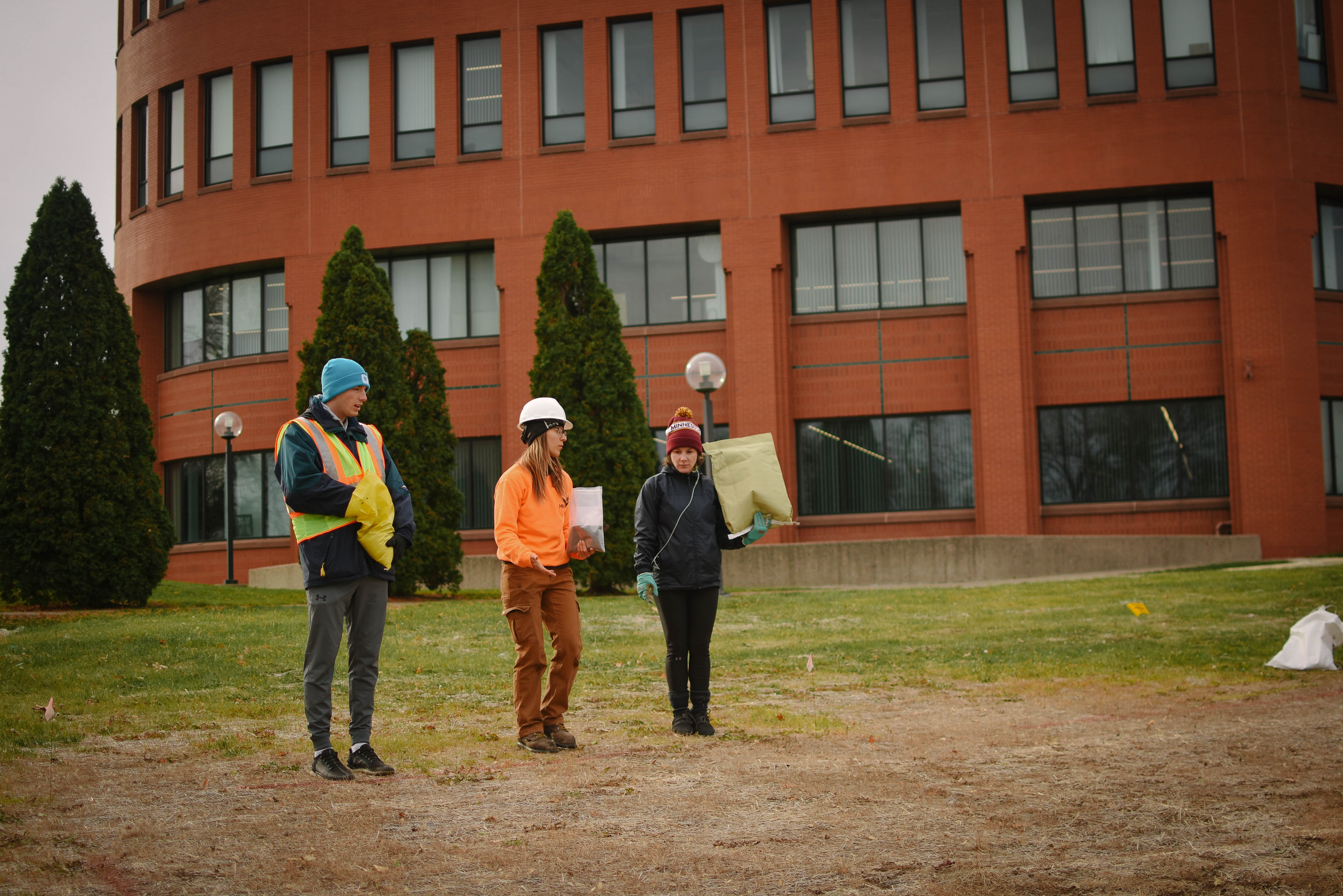
Briana Beck, O&M Project Supervisor | Energy Division MNL, (center) discusses proper seed spreading technique
In addition to the planting, a second crew installed soil moisture monitoring equipment beneath the solar panels. Volunteers dug post holes and set up equipment in an effort to measure the co-benefits of mitigating stormwater runoff. The deep-rooted nature of the new plants will break up the soil and increase infiltration to help keep soil in place during heavy rainfall, preventing it from producing runoff into the river. The moisture monitoring probes are placed at both 6 inches and 12 inches deep in the full sun, as well as under the solar panels’ drip edges where concentrated runoff will occur. The ground underneath the array will also be monitored where rainfall does not directly reach.
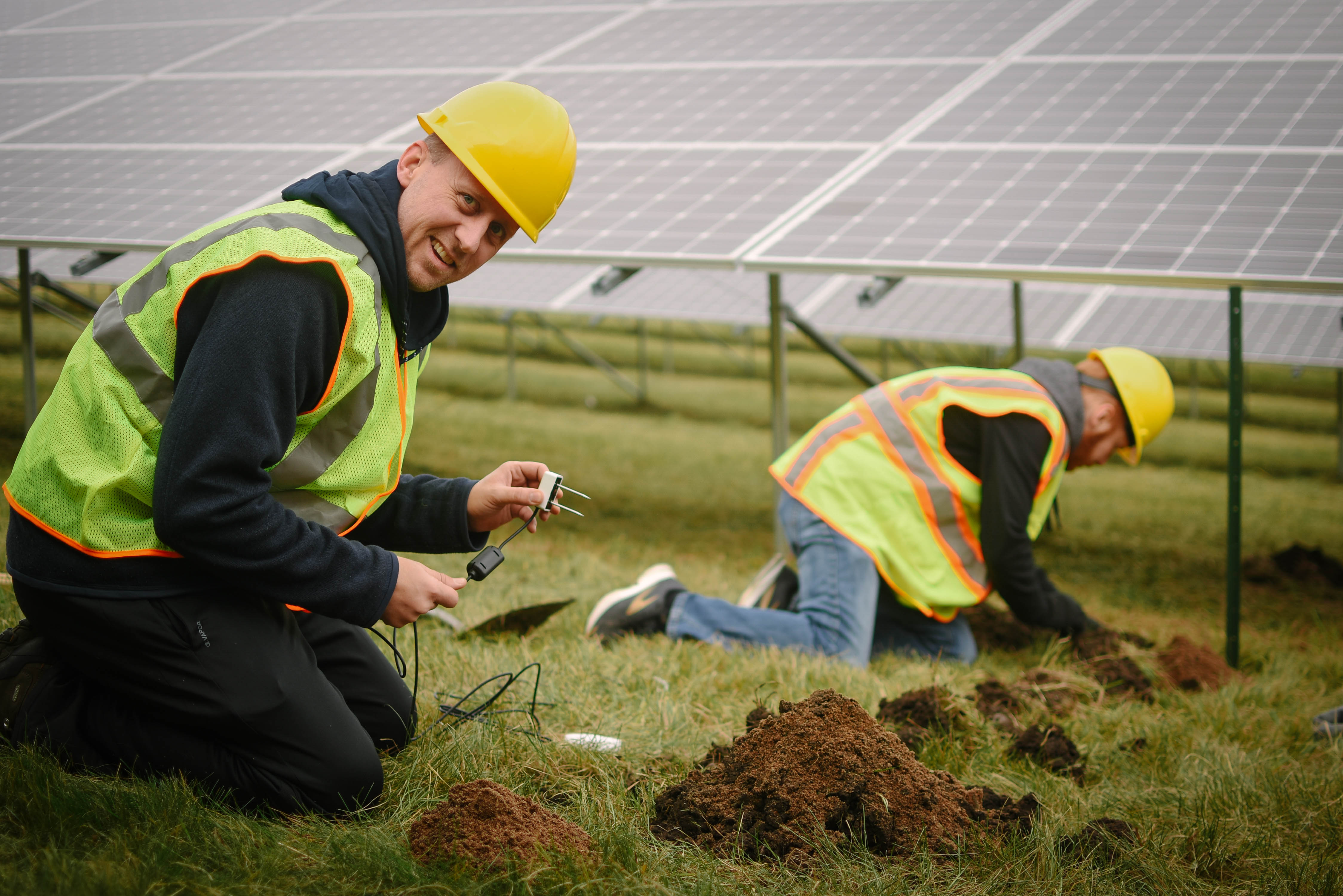
Aaron Hanson and Bradley Luchsinger, Philosophy major and IonE Undergraduate Leaders Program Alumni install soil moisture monitoring equipment
Data will be collected for years to come as part of the Living Lab program, becoming measurable as the pollinator habitat becomes established and as the root depths increase. Although this is the only equipment being installed for the time being, other research activities around the West Bank solar array include site observation, such as looking for bees and butterflies and an increase in their visits to the site to find food. Hennepin County also hopes to use the site to monitor for avian activity and gather data on whether birds use the site as ground nesting or feed on the increased population of insects. This research will be useful going forward to see how a pollinator habitat can develop on a solar site in an urban setting.
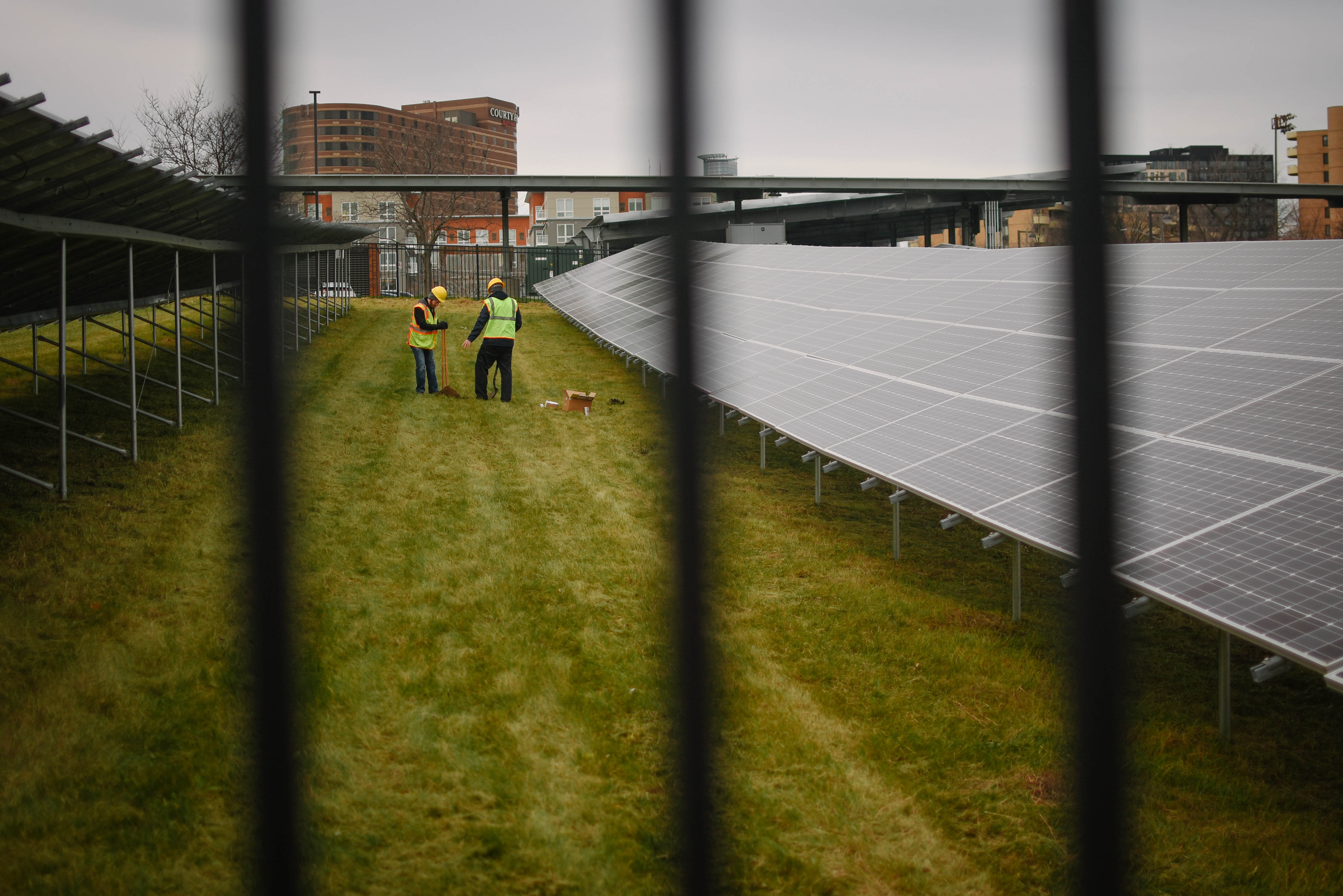
Aaron Hanson and Bradley Luchsinger, Philosophy major and IonE Undergraduate Leaders Program Alumni install soil moisture monitoring equipment
A community grant from the Mississippi Watershed Management Organization (MWMO) made it possible for the University to receive the research equipment and additional seeds, and the University received consulting and implementation services from Minnesota Native Landscapes (MNL). Thank you!
